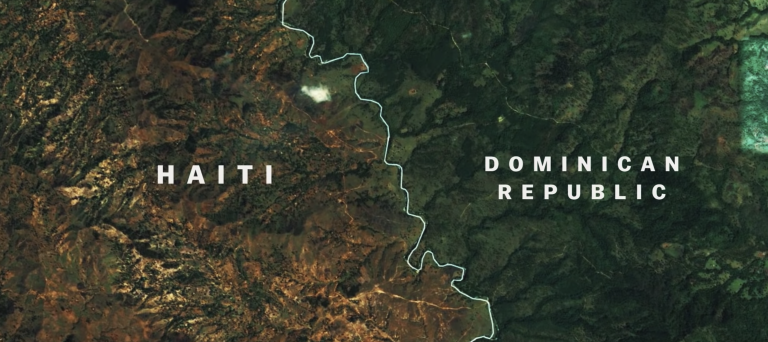Haiti and the Dominican Republic share the island of Hispaniola in the Caribbean, but their relationship is fraught with historical, social, and political tensions. These issues have deep roots and continue to impact the dynamics between the two nations. This article explores the actual problems between Haiti and the Dominican Republic, highlighting the key areas of conflict and their implications.
1. Historical Context and Legacy
Colonial History
The island of Hispaniola was divided between France and Spain, resulting in the establishment of Haiti and the Dominican Republic, respectively. This colonial history laid the groundwork for lasting disparities and conflicts:
- Different colonial legacies: Haiti was a French colony, while the Dominican Republic was under Spanish rule.
- Distinct cultural and linguistic identities: Haiti’s population speaks Haitian Creole and French, whereas the Dominican Republic’s official language is Spanish.
Haitian Occupation (1822-1844)
Haiti’s occupation of the Dominican Republic for 22 years has left a lasting impact on bilateral relations. This period is remembered differently in each country, contributing to:
- Resentment and mistrust among Dominicans.
- Pride and historical significance for Haitians.
Economic Disparities and Migration Issues
Economic Conditions
Haiti is one of the poorest countries in the Western Hemisphere, while the Dominican Republic has a more robust economy. These economic disparities drive migration and create tension:
- Haitians seeking better opportunities often migrate to the Dominican Republic.
- Dominican concerns about job competition and resource allocation.
Migration and Deportation
The influx of Haitian migrants has led to significant social and political issues:
- Deportations: The Dominican Republic has implemented policies leading to the deportation of many Haitians, often under controversial circumstances.
- Citizenship and legal status: Many Haitian descendants in the Dominican Republic face challenges in obtaining legal status and citizenship, leading to statelessness and human rights concerns.
Racial and Cultural Tensions
Racial Discrimination
Racial discrimination is a pervasive issue, with deep-rooted prejudices affecting relations between the two countries:
- Anti-Haitian sentiments: Negative stereotypes and discrimination against Haitians are prevalent in the Dominican Republic.
- Colorism: Issues of race and colorism also play a significant role, with darker-skinned individuals often facing greater discrimination.
Cultural Differences
Cultural differences further exacerbate tensions:
- Language barriers: Haitian Creole and French versus Spanish.
- Religious practices: Varying religious traditions and practices add another layer of complexity to bilateral relations.
- Environmental and Border Disputes
Deforestation and Environmental Degradation
Environmental issues, particularly deforestation, affect both countries but manifest differently:
- Haiti’s deforestation crisis: Severe deforestation in Haiti leads to environmental degradation, soil erosion, and loss of biodiversity.
- Cross-border environmental impact: These environmental issues have cross-border implications, affecting shared resources and leading to conflicts over land use and resource management.
Border Security and Smuggling
The porous border between Haiti and the Dominican Republic is a hotspot for smuggling and illegal activities:
- Illegal trade: Smuggling of goods, including food and fuel, creates economic and security concerns.
- Human trafficking: Both countries struggle with human trafficking, with vulnerable populations often exploited.
5. Political and Diplomatic Challenges
Governance and Corruption
Both Haiti and the Dominican Republic face political challenges that impact their bilateral relations:
- Political instability in Haiti: Chronic political instability and governance issues in Haiti affect diplomatic relations.
- Corruption: Corruption in both countries undermines efforts to address shared challenges effectively.
Diplomatic Relations
Diplomatic relations between the two nations are often strained:
- Disputes over policies: Immigration policies and deportation practices frequently lead to diplomatic tensions.
- Efforts for cooperation: Despite these challenges, there are ongoing efforts to improve cooperation through dialogue and bilateral agreements.
Human Rights Concerns
Treatment of Migrants
Human rights organizations frequently highlight issues related to the treatment of Haitian migrants:
- Arbitrary detentions and deportations: Reports of human rights abuses and lack of due process in deportation proceedings.
- Living conditions: Poor living conditions and exploitation of Haitian workers in the Dominican Republic.
Statelessness
Many individuals of Haitian descent in the Dominican Republic face statelessness due to citizenship laws and policies:
- Denationalization: Legal changes have left many without citizenship, affecting their access to education, healthcare, and employment.
- Advocacy efforts: Human rights groups continue to advocate for the rights of stateless individuals and push for legal reforms.
Navigating Complex Relations
The relationship between Haiti and the Dominican Republic is multifaceted, with historical legacies, economic disparities, racial tensions, environmental challenges, and political dynamics all playing significant roles. Addressing these issues requires a multifaceted approach, including improved diplomatic relations, economic cooperation, and efforts to combat discrimination and human rights abuses. By fostering mutual understanding and collaboration, both nations can work towards a more harmonious and equitable coexistence.






